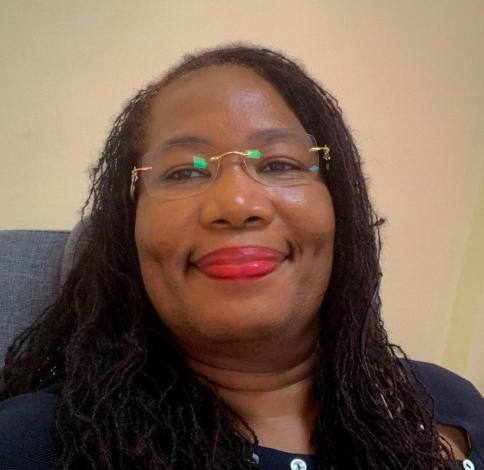
Cancer in My Community is a Cancer.Net Blog series that shows the global impact of cancer and how people work to care for those with cancer in their region. Verna Vanderpuye, MBChB, is a practicing oncologist at the Korle-Bu Teaching Hospital in Accra, Ghana, and a recipient of the 2019 International Women Who Conquer Cancer Mentorship Award. Dr. Vanderpuye is also a member of several regional and international cancer organizations, including as a current or past committee member of the African Organization for Research and Treatment of Cancer, the American Society of Clinical Oncology, the World Health Organization, and the European Society of Medical Oncology, among others. She has authored or coauthored 70 peer-reviewed journal articles and 12 book chapters. You can follow Dr. Vanderpuye on Twitter.
Why I care for people with cancer
I got into cancer care by sheer coincidence. I was at a point where I was wondering what my career prospects were when I came across a scholarship offer for radiation oncology. Not knowing what it was at the time, I did some research at the library and instantly fell in love with the concept. I realized I needed further training in medical oncology, so I decided to embark on that journey, too.
I couldn’t be happier treating and guiding people with cancer who would have otherwise lost all hope. I find purpose in educating them on the disease and managing their symptoms and expectations about their journey. I continue to learn from my patients and gain new insights in the field, and I train others to do so to ensure the sustainability of quality cancer care for decades to come. It is my absolute pleasure to dedicate my life to caring for people with cancer.
What cancer is like in Ghana
For many years, cancer was an unspoken word in Ghana. Even today, the word “cancer” does not exist in many of our local languages. Instead, the words used to describe cancer have been “abomination,” “contamination,” and “immediate death,” which have been fueled by the culture and sensationalism. As an oncologist, I am called the “doctor of death” by some because I emphasize the importance of discussing a person’s end of life. But it is a fact of life to die; this is true for everyone, not just for those with cancer.
Overall, there is a lack of quality cancer care in Ghana, and there are several reasons for this. First, there is a lack of cancer education for health care workers, and quality cancer care is only available in the tertiary hospitals located in the 2 major cities in Ghana. Secondly, out-of-pocket expenses for cancer care are quite high, which limits treatment options for people with cancer, especially for those with advanced disease. And, like many other low- and middle-income countries, Ghana currently has a national health insurance system that is struggling to absorb the costs of cancer care. Last but not least, oncologists compete with alternative medicine practitioners for the trust of people with cancer. We often lose out because we cannot promise to prevent side effects from our treatments.
All the same, Ghana has made positive strides with cancer care facilities and the quality of treatments available. Our example could be emulated by neighboring countries. For example, many health care workers are now aware of the current treatment options available to people with cancer. The stigma of cancer in Ghana is fueled by an absence of interventions, but a lot has been achieved in my country in terms of infrastructure for cancer care.
We still have a long way to go to call cancer care in Ghana optimal. Many people with cancer are still misdiagnosed and miss their opportunity for a cure or cannot afford standard treatments that will improve their outcomes. And, cancer care in Ghana will definitely not include access to expensive cancer drugs that are currently on the market elsewhere. But I believe things will improve in a short while.
Where people with cancer can find local resources and support in Ghana
We have indeed come a long way with patient support in Ghana. We finally have dedicated clinical psychologists and organizations to help people with cancer, including Reach for Recovery, Cancer Connect Ghana, Breast Care International, Ghana Parents Association for Childhood Cancer, Lifeline for Childhood Cancer, the Mmofra Foundation, the Indian Women Association, and many local churches. Many people with cancer also use online resources. However, we unfortunately do not have any government resources. Patient-led navigator and survivorship programs are also not well established in Ghana, probably from the persisting stigma associated with a cancer diagnosis.
The author has no relevant relationships to disclose.
